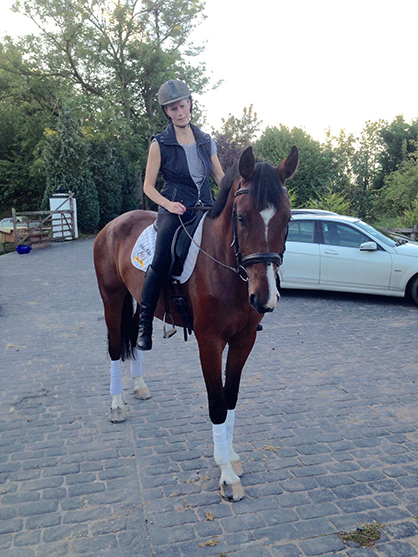Calculating PPM For Horse Supplements in Two Easy Steps
March 6, 2015 Comments Off on Calculating PPM For Horse Supplements in Two Easy Steps
Example #1: Your hay contains 140 ppm of iron. How much iron is in 20 lbs of hay?
Continue reading …Trailer Preparation Tips for Horse Show Travel Season
March 4, 2015 Comments Off on Trailer Preparation Tips for Horse Show Travel Season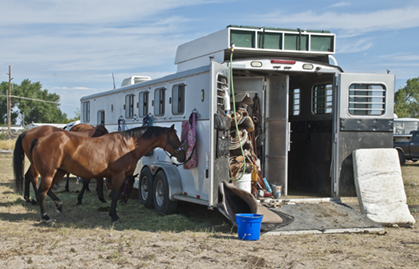
While many of us are currently buried up to our noses in snow, travel season is just around the corner. Before the start of this season, it is critically important for many equine enthusiasts to perform basic, yet essential, maintenance on their trailers.
Continue reading …Merial Purchases Equine Products LEGEND® and MARQUIS® From Bayer
March 3, 2015 Comments Off on Merial Purchases Equine Products LEGEND® and MARQUIS® From Bayer
“LEGEND and MARQUIS both have long histories of success and enhance our existing product offerings to all horse owners, whether they trail ride, compete locally or have stood in the winner’s circle on the national stage.”
Continue reading …Horse Poop Needed… (Not a Joke) It’s For Research!
February 26, 2015 Comments Off on Horse Poop Needed… (Not a Joke) It’s For Research!
Dr. Tom Schell and the team at Nouvelle Research, Inc. are investigating the impact of bacterial shifts within the feces of horses and the subsequent impact on health and lameness. For decades, we have known that in certain horses as a result of environmental problems, stress and feed changes that the bacterial population can shift, but we haven’t looked at this problem in the everyday horse.
Continue reading …A Boy and His Horse: Large Animal Hospital Helps Restore a Special Bond
February 24, 2015 Comments Off on A Boy and His Horse: Large Animal Hospital Helps Restore a Special Bond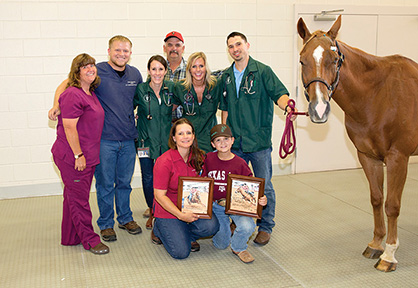
It is often said that dogs are man’s best friends, but sometimes a horse can be a boy’s best friend. Ten-year-old Kaden Ramirez and his horse, George, share a bond that is deeper than most.
Continue reading …Interested in Taking a Course on Stallion Handling, Horse Behavior, or Equine Reproduction Technology?
February 23, 2015 Comments Off on Interested in Taking a Course on Stallion Handling, Horse Behavior, or Equine Reproduction Technology?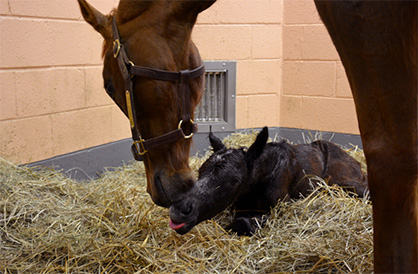
The continuing education courses are open to veterinarians, owners, breeders, trainers, stallion handlers, vet techs, behavior specialists, and vet students and residents.
Continue reading …“Tales From the NICU,” A Day in the Life of a Neonatal Vet- March 3rd
February 17, 2015 Comments Off on “Tales From the NICU,” A Day in the Life of a Neonatal Vet- March 3rd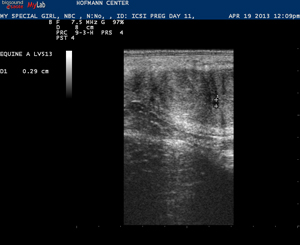
Setlakwe will describe what caring for these sick neonates entails, including intensive care of ‘mattress’ and ‘dummy’ foals; high-risk pregnancy monitoring of pygmy goats; and treatment of crias that develop severe infections shortly after birth. Get a glimpse of what a “typical” day might be for a NICU veterinarian.
Continue reading …The Horse With a Heart a Few Sizes Too Big…
February 13, 2015 Comments Off on The Horse With a Heart a Few Sizes Too Big…
Windsor, foaled in England, is a 12-year-old gelding that weighs more than 2,200 pounds and stands more than 18 hands high. “He’s huge,” Reef said.
Continue reading …Unique Pool Recovery System Helps Horses Wake Up From Anesthesia
February 10, 2015 Comments Off on Unique Pool Recovery System Helps Horses Wake Up From Anesthesia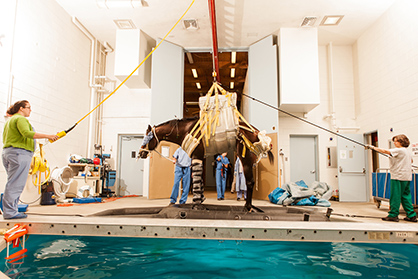
“Waking up from anesthesia in the pool gives horses a chance to safely recover their strength, coordination, and awareness, and that provides a much better chance for them to recover without injury.”
Continue reading …








